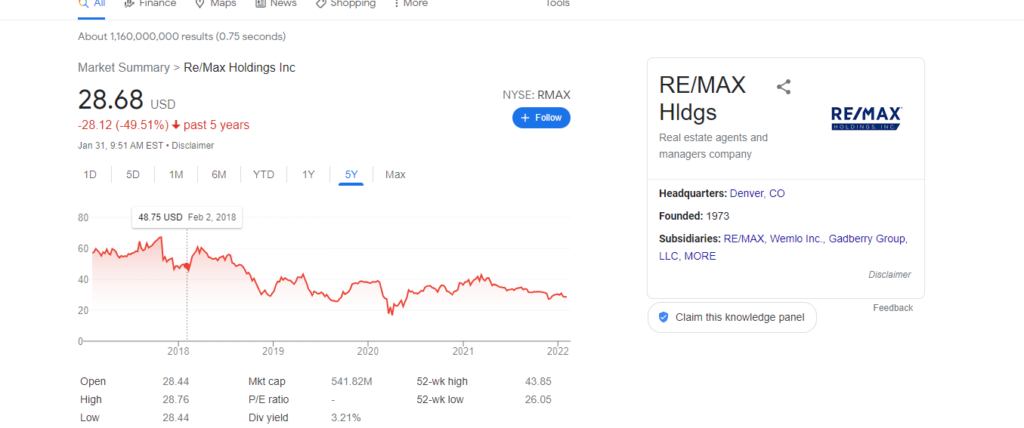Which real estate broker is better: Exit Realty or eXp? That’s the topic we’re going to explore in this post. It’s a match up of Exit Realty vs eXp.
Let me start off by saying that both real estate brokers have their own advantages and disadvantages. They both offer value to their real estate agents, but that value is different from agent to agent.
It’s rarely a debate between which broker is better, but which broker — Exit Realty or eXp — is better for you.
While I’m biased towards Exit Realty, since I choose to be with Exit Realty, there are plenty of real estate agents who are a perfect fit for eXp. And, quite frankly, some of these agents would never be hired by Exit Realty and allowed to become part of the Exit brand.
Research for this article was pulled from my personal experience with Exit Realty and investigating the onboarding process at eXp, as well as several videos and webinars put on the web by real estate agents working for eXp.
Here’s what we’ll cover in this article:
- Exit Realty vs eXp Business Model
- Commission Splits and Fees
- Sponsoring Bonuses vs Revenue Share
- New Agent at Exit Realty vs eXp
- Teams at Exit Realty vs eXp
- Retirement Plans: Exit Formula vs Stock Purchase Program
- Culture & Community
Exit Realty vs eXp Business Model
Exit Realty and eXp Realty have very different business models with a few similarities. What do I mean by a business model?
A business model is a company’s profit-strategy that explains which services it will sell, who its target market is, and the expected costs.
At Exit Realty, the company is selling high-level training and support, technology, a people-focused culture, and an additional method for generating an income. Every real estate agent that is part of the Exit Realty system is more than just a number or their production.
There is a strong belief that real estate success comes from strengthening and supporting a real estate agent — both personally and professionally.
It’s not about your job title or career as a real estate agent, but the person who has that job title and chosen a career in real estate.
eXp Realty is focused on creating a brokerage where teams can grow and where agents pay very little in commissions.
There’s a fundamental lesson in understanding business models. It’s this: the more revenue a company generates, the more they can put into the quality of their service or product.
So, it’s a relatively safe heuristic that the more a real estate agent pays to their broker, the more stuff — tools, training, technology, support, leads — that a broker will provide.
Of course, this isn’t always true when looking at individual brokerages, but we are talking about averages here.
Keep this in mind when we start talking about commission splits.
Why Private Companies Matter
At the corporate level, Exit Realty and eXp Realty are miles different. Exit Realty is a privately held company and operates as a franchise system. eXp Realty is a publicly-traded company (EXPI) and doesn’t offer any franchise opportunities. Instead, all real estate agents and offices are “hired” by the company.
Okay, so what? Why does this matter to individual real estate agents?
A publicly-traded company has more financial reporting requirements than a privately held company — significantly more. So, the eXp must take some of the money that agents paid in commissions and use it on preparing documents and reports to keep the SEC happy. That’s money that could have gone and supported real estate agents.
Private companies like Exit Realty can take the commission saved on arduous paperwork, reporting, and filing requirements and invest it back into their real estate agents.
Second, it’s easier for private companies to invest in long-term growth strategies that will benefit their agents. Long-term growth strategies often eat up cash and lower the profits of a company. The investment might not pay off instantly.
A publicly-traded company is going to think twice before making these investments into their real estate agents. An investment that doesn’t pay off instantly might mean lower earnings, which would result in a lower stock price. And, shareholders won’t be happy about that.
eXp Realty, as a publicly traded company, has to keep shareholders happy. This might mean they don’t make the investments into long-term strategies and the real estate market moves on without them.
The real estate industry is rapidly changing. Failure to adapt will result in death for a company.
Understand that as a publicly traded company, there is a competing interest between the shareholders and its agents.
Exit vs eXp Commission Splits
Both companies have favorable commission splits for real estate agents — at least in comparison to the more traditional real estate brokers like Coldwell Banker and Century 21.
The commission split at Exit Realty is 70-30 on the first $100,000 in gross commission income (GCI) for the year, then the remaining GCI is at a 90-10 split.
Example: Robert produces $150,000 in gross commission income. The first $100,000 is at a 70-30 split and the remaining amount ($50,000) is at a 90-10 split. Robert will pay the broker $35,000 and receive $115,000. The average commission split for Robert is 76.7 percent.
eXp Realty starts their agents out at an 80-20 split (this assumes you’re not part of a real estate team) with a $16,000 cap. Once an agent reaches their cap, they will get 100 percent of their commission.
Example: Kathleen produces $150,000 in gross commission income, like Robert, but she only pays $16,000 in commission to the broker. The net commission income for Kathleen is $134,000, or $19,000 more than Robert.
Assuming all other variables are equal, it would make sense to join eXp. A real estate agent would make more money.
It’s More Than Commissions
An agent shouldn’t just chase the broker that offers the highest split. You have to weigh the commission split against the services offered and what effect you think your broker will have on your production.
Remember the heuristic we mentioned earlier? The more you pay to a broker, the more support you’re likely to get. We can assume that Exit Realty will be able to provide more service or products to its agents because its commission splits are a bit higher.
With additional services and training, it’s possible for an agent to have better production at Exit Realty than they would have at eXp Realty.
Example: Kathleen leaves eXp and joins Exit Realty. She is able to raise her production to $175,000. Based on this production, she will pay $37,500 to her broker and net $137,500 — a few thousand dollars more than at eXp.
Transaction And Monthly Fees
In addition to commission splits, there are other fees both companies charge that you have to be aware of. For example, both companies require a start up fee. The yearly fee at Exit Realty is around $325 a year, while eXp Realty’s fee is $149.
Monthly Desk Fees: eXp charges a regular monthly technology fee. It’s $85 per month and includes access to kvCORE, Skyslope, and their training and support. At Exit Realty, there are no desk fees. You can access a majority of the tools, technology, and training without paying a monthly fee.
At Exit, more agents can keep more money in their pockets on a monthly basis. Improving their cash flow position.
Transaction Fees: Agents at Exit Realty will pay two fees — a regional development fee and corporate fee. The regional fee is always $50, but the corporate fee will depend on the price of the home sold ($50 to $250). Either way, an agent is capped at $3,200 in transaction fees each year.
At eXp, real estate agents will have at least two, possibly three fees. First, there is a $25 broker review fee. Second, you will pay a $40 errors and omissions fee on every transaction.
If you cap as an agent, you will have a third fee. You will start to pay a transaction fee of $250 until you’ve paid more than $5,000 in transaction fees. At this point, you will pay $75 per transaction.
So, transaction fees at Exit Realty are $100 to $300 per transaction. At eXp, they are $65 to $315, but these don’t have a cap like Exit Realty.
Revenue Sharing Sponsoring Bonus
Part of the attraction to both of these companies is the opportunity to create residual income in perpetuity. Exit Realty offers a high-percentage, single-level sponsoring bonus. eXp offers a low-percentage, seven-level-deep sponsoring bonus.
To compare Exit Realty and eXp, real estate agents need to understand the difference between the two.
How They Work
At the most basic level, both programs work like this: a real estate agent sponsors another agent into the company and the sponsoring agent gets a percentage of the new sponsored agent’s commission.
Understand that both of these programs get their bonuses from the corporate level. It doesn’t reduce the commission split of an agent who is sponsored into the company.
At Exit Realty, an agent who sponsors another real estate agent into the company will get a bonus equal to ten percent of that agent’s gross commission income, up to $10,000. The bonus is single-level, which means it only applies to real estate agents that you directly sponsor into the company.
With eXp, the bonus an agent is paid will depend on the number of direct sponsors they have and how deep their sponsorship is. It can range as low as 0.1 percent for a tier all the way to 5.0 percent.
eXp Revenue Share Tiers
eXp Realty has created a seven-level revenue sharing plan that allows real estate agents to earn a percentage of commission on the production of their direct reports and those who are sponsored by sponsors, all the way down to seven levels.
Tier 1 at eXp is one direct recruit and the bonus paid is 3.5%, up to $2,800. To unlock the next tier, you need to have a certain amount of direct reports. You need five direct sponsorships to unlock tier 2 and you need 40+ to unlock tier 7.
So, if you personally sponsor 20 real estate agents into the company, you would receive 1.0%, up to $800 per agent, of the commission from your fifth line sponsors.
If you haven’t directly sponsored 20 agents into the company, you only qualify for 0.1% commission bonus on your fifth line real estate agents.
Personally, the eXp Realty seven-level model gets complicated fast. And, when something is complicated like that, I believe it’s easy for loopholes to show up and suddenly you’re not really receiving much money for recruiting people into the company.
Exit Realty Sponsorship Bonus
I love the simplicity of Exit Realty’s sponsorship model, called the Exit Formula. There aren’t all of these rules for qualifying at certain tiers and percentages. It’s simple: directly sponsor an agent and get equal to 10% of their gross commission income, up to $10,000 per year.
There are no special rules about having a certain number of direct recruits to qualify.
The Big Picture
To make the most of eXp revenue sharing plan, you need to directly sponsor a lot of people into the company and get your sponsors to sponsor people into the company, plus everyone needs to sell real estate to generate any revenue.
To me, that creates too many jobs. I’ve looked at a lot of eXp revenue sharing calculators and they talk about having hundreds of agents in their tier system. There is a well-known eXp agent who has about 460+ real estate agents on his team and he generates about $200,000 per year.
This is great, but I also wonder if he could have pursued a different revenue model and been better off. Let’s assume that he achieved the seventh-level and has 40 direct reports.
If all of those direct reports were producing $50,000 in gross commission income per year, he would net nearly the same amount (40 x $5,000).
In this case, he would only have to worry about his direct reports and mentoring them to sell real estate. Not trying to teach them to sell real estate or recruit.
It might be my bias, but the revenue share plan at eXp sounds more like a pyramid scheme to me. The goal is to recruit people who recruit people who will eventually produce real estate.
Under this model, it becomes a game of recruiting real estate agents rather than mentoring real estate agents and helping them succeed. It’s a numbers game. Quantity over quality.
The single-level system at Exit encourages mentorship. There are no benefits from recruiting an agent and having them recruit agents. This means direct sponsors can spend significantly more time mentoring their direct agents and they are financially incentivized to do just that.
New Agent at Exit Realty vs eXp
As a new real estate agent, you want to consider which company has the best training opportunity and leads. The biggest goals of a new real estate agent should be to learn the profession and get leads. Let’s look at some of the features both companies offer for new real estate agents.

At Exit Realty, your commission split will be 70-30. It doesn’t matter if you’ve never sold a home before. Often, your sponsor will gladly help train and support you without charging you an extra fee.
You can certainly always go on listing appointments, closings, or showings to learn from an experienced real estate agent.
Your sponsor or mentor will be in your brokerage office.
eXp Realty offers a mentorship program for new real estate agents who have not sold three or more homes in the last 12 months. The program partners you with an agent within 50 miles of you.
If you go this route, your commission split will change from 80-20 to 60-40 while you’re working with your mentor. After you complete three transactions, you will get the standard 80-20 split that eXp offers.
I’ve heard problems from eXp real estate agents that their mentor isn’t in their market, since they can be up to 50 miles away. Getting a hold of them is hard because you can only call, text, or email.
Unlike at Exit, you have a broker you can see in the office. Plus, Exit has weekly sales and business meetings where you can pin down your mentor.
Being Sponsored As A New Agent
Let me bring up the sponsoring program again, but I want to reframe with a focus on being sponsored. For a second, ignore the potential earnings if you sponsor other agents into a company.
Think for a moment what it would be like to be sponsored. In other words, which system do you want to be sponsored into?
As I mentioned, it takes recruiting a lot of agents and getting those agents to recruit agents in order to make the most of the eXp earning system. So, how does this affect agents who are sponsored into the company?
Well, your sponsor’s goals might not be fully aligned with yours, if your goal is to sell homes and be a successful real estate agent. Your sponsor will be concerned with recruiting more real estate agents and getting you to recruit real estate agents. It’s the only way the system works.
In fact, read some of the internet forums. You will see many new real estate agents join eXp and end up feeling abandoned by their sponsor.
At Exit Realty, there is a better alignment between the agent who wants to sell homes and their sponsor.
Your sponsor is only financially incentivized to get you to succeed in real estate, and they are rewarded a bonus that is better than eXp direct sponsors.
You see, your sponsor will only get a bonus if you sell homes. They don’t need to recruit more and more agents or have you recruit. Their only concern is getting you to sell real estate.
If I was a new agent, I would want to be sponsored by a real estate agent with the most financial incentive in helping me succeed. I’m going to get a better mentorship program and sponsor. That’s at Exit Realty.
The Winner: Exit Realty
To me, the winner for new real estate agents is Exit Realty.
Teams at Exit Realty vs eXp
If you’re a real estate team or thinking of building one, you will likely find eXp attractive. Due to its cap structure, eXp is a team-friendly brokerage. At eXp, you will find different commission split structures depending on the set up of your real estate team. Let’s look at some of the team structures eXp offers and how it compares to Exit Realty.
Self-Organized Team
This team structure is the most common structure used for most real estate agent teams, regardless of brokerer affiliation.
A self-organized team is based on a referral relationship with agents. Often, you will see a 50-50 commission split arrangement, where 50 percent goes to the team leader and 50 percent to the real estate agent.
At this point, the 50 percent is split at the respective commission split. In the case of eXp, this is at the 80-20 split until an agent hits the $16,000 cap.
Example: $8,000 commission on a 50-50 split to the team leader results in $4,000 to the team leader and $4,000 to the agent. eXp then takes 20 percent from both parties, assuming neither have hit their cap. This leaves the team lead with $3,200 and the agent with $3,200. If either or both parties hit the cap, then they will keep 100 percent of the commission, or $4,000 in this example.
The Standard and Mega ICON Team
These two team models require certain production numbers. For example, under the standard team plan, the team leader must close a minimum of $6 million or 30 transactions in the previous 12 months.
Both of these plans allow team agents to be on a reduced cap rate. However, a certain percentage of all deals must be written in the team leader’s name and commission split shared.
Example: $10,000 commission on a 75-25 split to the team leader results in $2,500 to the team leader and $7,500 to the agent. At this point, eXp would take 20 percent from both parties. That leaves $2,000 to the team leader and $6,000 to the real estate agent. The $1,500 the agent paid will go toward their reduced cap rate ($8,000 or $4,000).
Teams At Exit Realty
There aren’t different commission splits for teams at Exit Realty. Most real estate agents who have teams at Exit, will set up their team structure similar to the self-organized team at eXp. It will be based on a referral fee and the sponsorship bonus may play a role in how the referral fees are structured.
The Winner: eXp Realty
If you’re looking to build a team or have a real estate team, eXp Realty is the place to go. Their commission structure is set up to support real estate teams, at least from a financial perspective.
It’s easier to justify a 50-50 split when a real estate agent may only need to pay $8,000 or $4,000 per year. The team leader and the real estate agent can earn more than they can at other real estate brokerages.
Retirement Plans: Exit Formula Vs Stocks
Let’s talk about retirement. Most real estate agents end up working well into their 70’s because they have no retirement plan. As a real estate agent, it’s our responsibility to open up our own 401(k) or IRA. Few brokerages offer retirement plans for their real estate agents.
Well, Exit Realty and eXp have come up with a way to plan for retirement. At Exit Realty, agents are still eligible, at a reduced rate of seven percent, for sponsoring bonuses.
For example, an agent who sponsored an agent into the company can get a 7% bonus on the agent’s gross commission income.
At eXp, you can participate in their stock program if you hit certain metrics. Assuming price appreciation, you can sell the stock later to fund your retirement.
Downside Risk of Stock
Financial markets, specifically the stock market, carries significant downside risk. Of course, the upside potential is high, but it’s important to understand your risk when you’re evaluating the stock option program at eXp and comparing it to Exit Realty’s retirement residual plan.
First, you will bet your retirement on stock appreciation. Meaning, you’re taking the bet that stock prices of eXp will go up.
I don’t like those odds when we look at what happens to the real estate industry. Take Re/Max or Realogy, which at one point were the best real estate brokers. Both are publicly traded companies. Over the last five years, when the real estate market is going up, stock prices for these companies have suffered.

I believe this in part because of disruptive brokerages like eXp and Exit Realty. But, the issue with eXp is they’re competing on commission splits.
All it takes is another disruptive company to come to the market to totally wipe out the stock price. I imagine that’s what will happen to eXp.
It’s just a matter of whether or not you will get caught paying high prices only to be able to sell at a lower value.
Cash Flow Is Greater Than Accumulation
Do you know how to achieve financial freedom or independence? It’s when you produce enough cash flow to cover your expenses.
Sounds simple I know. But cash flow will allow you to reach your goals and live wealthy along the way. Trying to accumulate money (through stock appreciation value) will require you to save, scrimp and delay.
You will be left in a constant state of hoping that someday you have enough money in your bank account to retire. And you better pray you don’t run out of any money before you die.
It’s better to create cash flow, which is what you’re doing at Exit Realty. You can get paid every time your direct-sponsored agent closes a transaction. As long as the agent stays with Exit, you can receive this bonus.
If you decide to retire at 40, good luck having enough funds to last you until you die.
Culture & Community
It’s important to mention culture. I can’t really speak to eXp’s culture, but I’m going to make a few deductions and compare it to the culture of Exit Realty.
eXp Realty Culture
From experience building a business in the home service industry and now real estate, I find it’s hard to build any sense of culture when everything is remote and virtual. I believe that the culture you experience at eXp will be tied to who your sponsors are and if you’re on a real estate team.
There are two things that are needed to create a culture in a company: bringing on the right people and reinforcing the values of the company.
It’s not enough to have generic platitudes as core values, which I imagine you get at eXp Realty.
First, they will hire almost anyone. That brings in people from different backgrounds with different values. That’s not a huge issue if you reinforce the company values constantly.
For example, the Army brings in people who hold different values, but every soldier is united by a set of core values that are reinforced constantly, especially in basic combat training.
With the fractured structure of eXp, I don’t believe they’re able to create any kind of consistent culture.
Exit Realty’s Culture
Exit Realty is better able to combat cultural issues in their organization. First, Exit Realty, for the most part, is an invite-only real estate broker. There are stricter requirements to join Exit Realty.
We’re not looking for just anyone with a pulse. We want the right people. The people that share our values and philosophies.
On top of that, values are reinforced through communication and at the broker level. From weekly meetings at your brokerage to the “Witt Bits” that will show up in your email inbox.
Exit Realty’s culture is all about the people behind the career title. It’s about making a positive difference in the communities we live in.
You can see this with Exit Realty’s “Spirit of Exit” program, which is a dollar-for-dollar matching charity program that local brokers can use.
Final Words On Exit Realty Vs eXp Realty
Both Exit Realty and eXp have value to offer to any real estate agent. There are several similarities between the companies. To find the right brokerage for you, it comes down to a few questions:
Do I Prefer A More Established Brand?
Exit Realty has been around since 1996. So, if you want a brokerage with a stable reputation, then Exit Realty is for you. If you don’t mind the risk associated with being on the ground-floor of a new company, then eXp is probably for you.
How Much Experience Do You Have?
Do you have your own customer base and already understand how to complete real estate deals in your market? Then, I would look at eXp. If you’re a newer agent or an agent looking for more support, then Exit Realty may be for you. At Exit, you will find more support and training to help you succeed as a real estate agent.
Do You Just Want To Be Successful At Real Estate?
There is a lot of training on being a successful real estate agent at both real estate brokers. However, you won’t find any additional training or resources outside of real estate when you join eXp. At Exit Realty, you can access MIND-set training to make you a better real estate agent and person. Plus, Exit Realty recently invested $50 million into its agents during the pandemic. Part of that investment focused on creating resources around well-being and mental health for real estate agents. Exit is a company that cares about the person behind the job title, real estate agent.
What I Ultimately Decided
For me, I joined Exit Realty. My primary motivation was what I thought would be better for real estate agents that I sponsored.
While I could maybe make more at eXp realty and eXp might have been better for me personally, I don’t think it would have served the agents I sponsor.
My primary concern was for other agents. Not myself. That’s also the culture Exit Realty has. I wanted to align myself with a company that cared more about its agents. That had a heart of service.
At eXp, I get the vibe that those agents are concerned about themselves. They join because of how much money THEY can make. How many people THEY can recruit. It’s not about supporting agents. The agents they sponsor are just a means to an end.
They care about THEMSELVES and their goals. Not their agent’s goals.
I didn’t want to be part of that, so I joined Exit. My true passion is in helping real estate agents and teaching. Exit Realty has the systems for creating more successful real estate agents.




